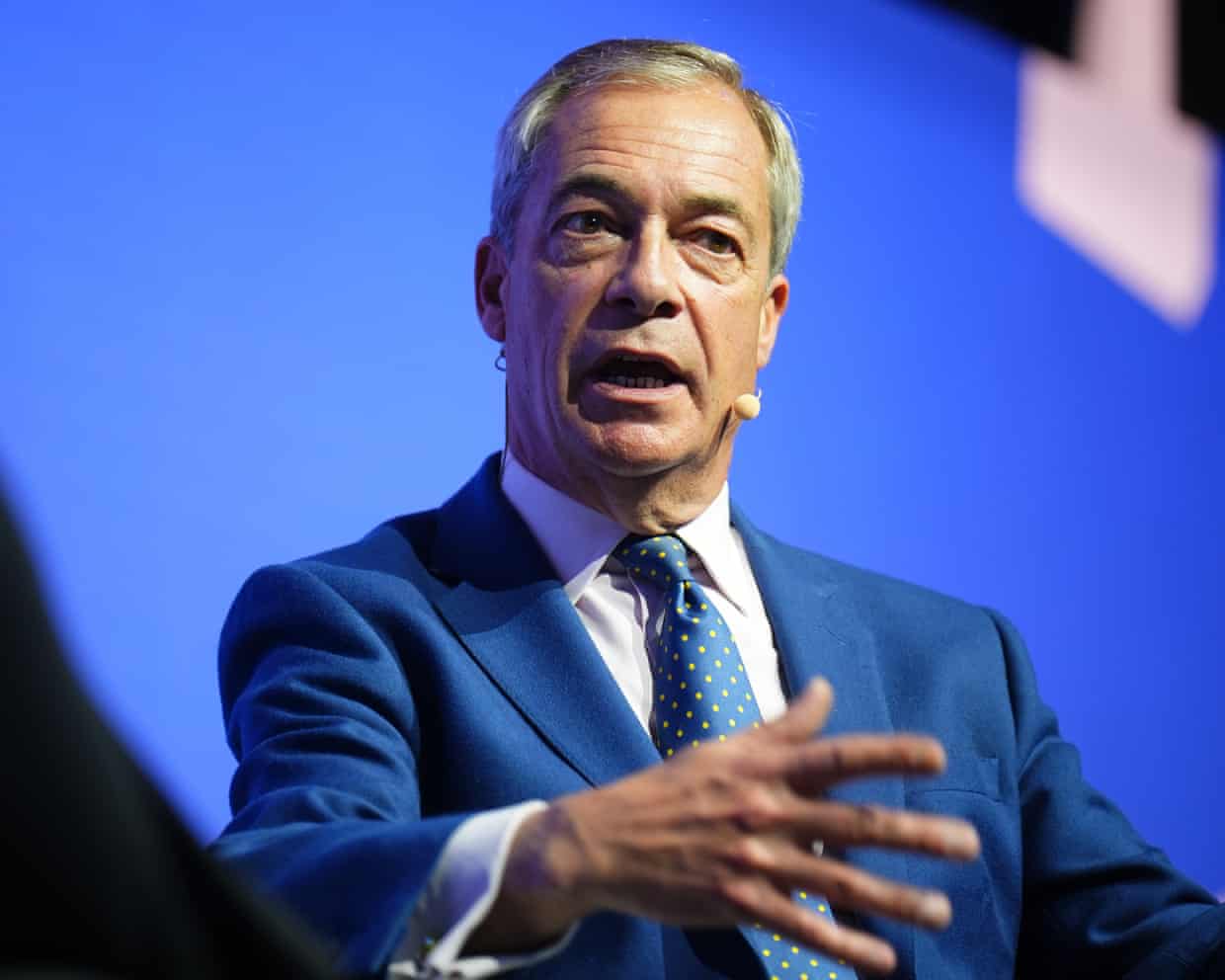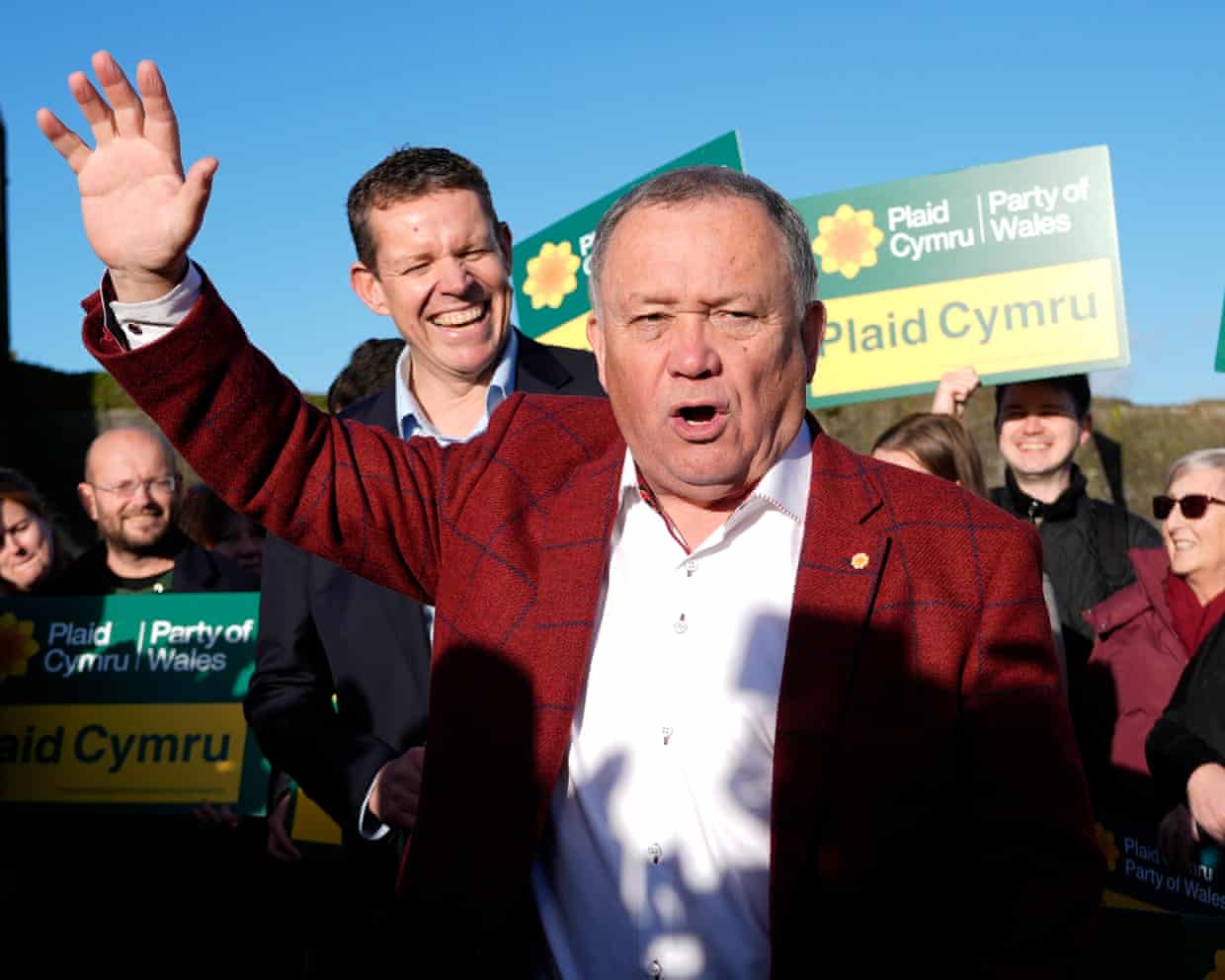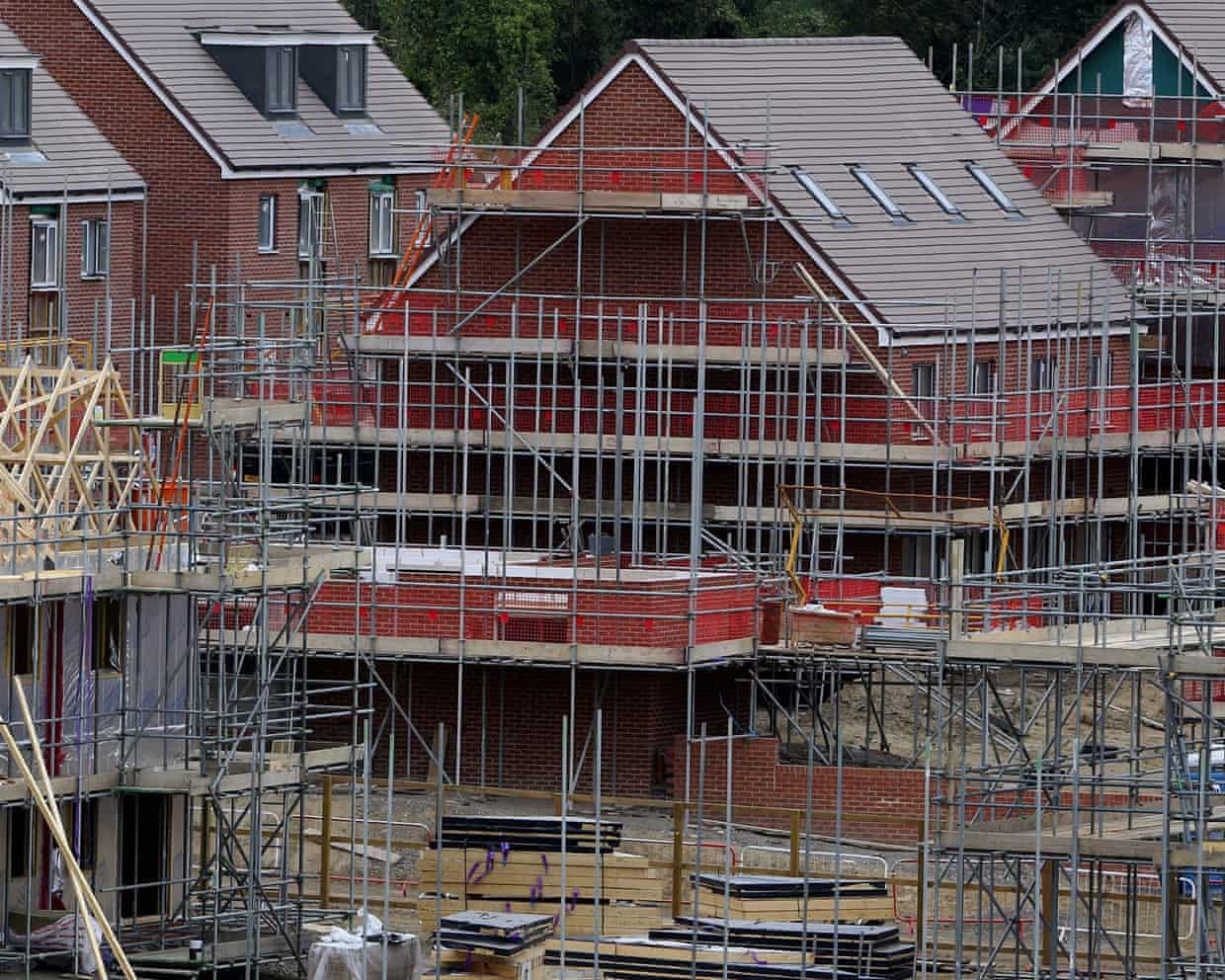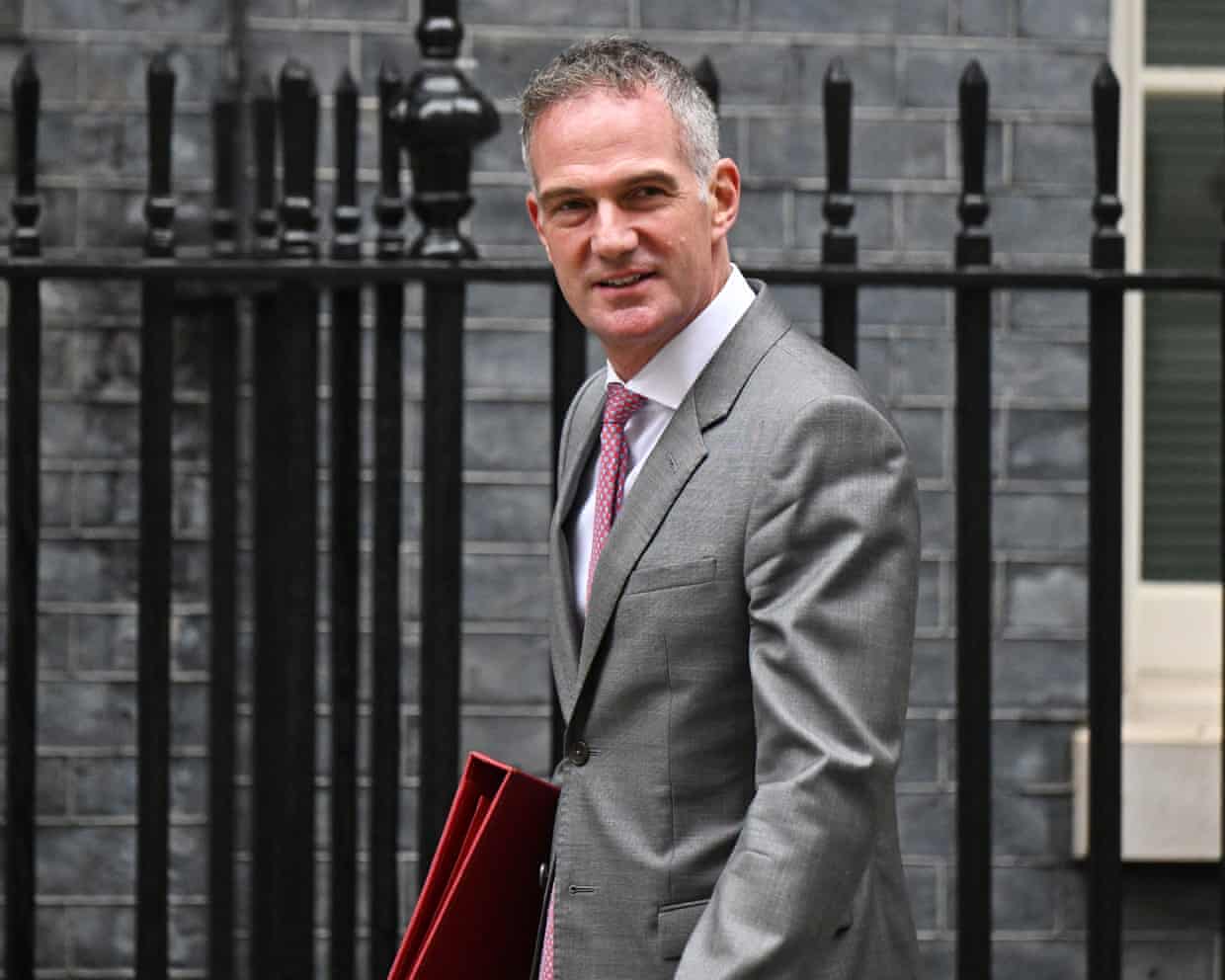Nigel Farage seeks influence over Bank of England in same vein as Trump and US Federal Reserve

Nigel Farage has suggested he would replace the governor of the Bank of England, Andrew Bailey, if he were to become prime minister.“He’s had a good run, we might find someone new,” Farage said in an interview with Bloomberg’s The Mishal Husain show.“He’s a nice enough bloke,” the Reform leader added.However, Farage is unlikely to have a say in Bailey’s leadership, given the governor’s single eight-year term is due to end in March 2028 and the prime minister, Keir Starmer, is only required to hold a general election sometime before 15 August 2029.Farage has been calling for politicians to have greater influence on the central bank, which was made independent in 1997 by the then chancellor, Gordon Brown.
His comments on Bailey’s position are the latest sign that Farage could seek to follow in the footsteps of his friend Donald Trump’s relationship with the US Federal Reserve,Trump has sought to increase his administration’s influence over the US central bank, which like the Bank of England makes its interest rate decisions independently,The US president has demanded interest rate cuts and launched stinging attacks on the Fed’s chair, Jerome Powell – calling him a “moron” on social media – and threatening to remove him,Farage’s latest comments come just weeks after he and Reform UK MP Richard Tice held a meeting with Bailey at the Bank’s Threadneedle Street headquarters,Farage had been calling for the central bank to halt bond sales and cut the interest rate it pays to UK banks, after an exchange of letters, in which the governor agreed to a meeting.
Tice, Reform’s deputy leader, has previously said the Treasury should be allowed to appoint “one or two” government representatives to sit on the Bank’s rate-setting monetary policy committee (MPC).The Reform UK leader, who previously worked as a commodities trader, has worked more recently as a brand ambassador for a gold company, and has discussed his goal of making London a global “powerhouse” for cryptocurrencies.Farage, who has previously called Bailey a “dinosaur” for his views on digital currencies, said he was encouraged by the governor’s change of heart about stablecoins, a type of cryptocurrency that is supposed to have a stable value, such as US$1 (£0.75) per token.“The Bank of England, the British government, the regulator – whatever shape that takes – they’ve all got to understand the world is changing, has changed, very, very rapidly,” Farage said.
After Bailey’s meeting with Farage and Tice, a Bank of England spokesperson said the governor had “a productive meeting” with them.The best public interest journalism relies on first-hand accounts from people in the know.If you have something to share on this subject, you can contact us confidentially using the following methods.Secure Messaging in the Guardian appThe Guardian app has a tool to send tips about stories.Messages are end to end encrypted and concealed within the routine activity that every Guardian mobile app performs.
This prevents an observer from knowing that you are communicating with us at all, let alone what is being said.If you don't already have the Guardian app, download it (iOS/Android) and go to the menu.Select ‘Secure Messaging’.SecureDrop, instant messengers, email, telephone and postIf you can safely use the Tor network without being observed or monitored, you can send messages and documents to the Guardian via our SecureDrop platform.Finally, our guide at theguardian.
com/tips lists several ways to contact us securely, and discusses the pros and cons of each.

No 10 accepts people are ‘disappointed with the pace of change’ as Plaid Cymru celebrates Caerphilly byelection win – as it happpened
The prime minister’s press secretary has responded to the Caerphilly Senedd constituency byelection, which saw a huge swing away from Labour, by saying that “Byelections are always difficult for incumbent governments,” PA Media reports.It quotes them saying:This one is no different, but we are determined to show the people of Caerphilly and working people across Wales the change the UK Government is delivering hand in hand with the Labour government in Wales.(We are) determined to go further and faster, understand people are disappointed with the pace of change, and that is what the Government is relentlessly focused on delivering for working people in Wales and across the UK.The prime minister’s press secretary has responded to the Caerphilly Senedd constituency byelection, which saw a victory for Plaid Cymru with Reform UK in second place and a huge swing away from Labour, by saying “By-elections are always difficult for incumbent governments. [We] understand people are disappointed with the pace of change”Lindsay Whittle has been sworn in as the Plaid Cymru Senedd member for Caerphilly in Cardiff after taking 47% of the vote with 15,961

Caerphilly byelection a triumph of positivity over division, says Plaid Cymru leader
Plaid Cymru can offer a positive vision for Wales for voters who want to reject the divisiveness of Reform UK, the party’s leader has said after a triumphant Welsh parliamentary byelection.Rhun ap Iorwerth said the 47% win for his party in the Caerphilly byelection was a rejection of Reform and its focus on immigration, which, while important, did not overshadow more pressing issues, such as healthcare and housing.Speaking to the Guardian on Friday outside Caerphilly Castle, ap Iorwerth said the win for his party’s candidate, Lindsay Whittle, also underlined a crash in support for Labour, which had “abandoned its values”.He said he accepted tactical voting was in play, but that it was only part of the picture, with some lifelong Labour supporters making a permanent shift in support.“The scale of the results shows the positive engagement with our vision,” he said

‘Reform didn’t have any idea about south Wales’: Plaid Cymru supporters celebrate byelection win
The skies above Caerphilly may have matched the turquoise of Reform UK but it was the green and yellow of Plaid Cymru that dominated the valleys town on Friday morning.The Welsh nationalists trounced their opponents with a hefty 47% of the vote in a Senedd byelection that was framed by many as a potential “canary in the coalmine” moment for Welsh politics.Reform failed to live up to the hype and came second with 36% and Labour’s vote – in a constituency it has held for decades – collapsed to a paltry 11%.It had been expected to be closer between Plaid and Reform, pegged as a 50/50 two-horse race. Both parties threw their weight behind the contest, with their respective leaders, Rhun ap Iorwerth and Nigel Farage, joining the campaign trail earlier this month

Plaid Cymru ousts Labour in Caerphilly byelection
Plaid Cymru has hailed its win at the Caerphilly byelection as a historic moment for Wales, as the dramatic result left the leaders of Labour and Reform UK wounded.Rhun ap Iorwerth’s party, which wants independence for Wales, seized the Senedd (Welsh parliament) constituency from Labour and resisted a fierce challenge from Reform UK.Plaid Cymru’s candidate, Lindsay Whittle, received 15,961 votes, while Reform UK’s Llŷr Powell won 12,113. Labour’s vote collapsed in what had been a stronghold, with its candidate, Richard Tunnicliffe, polling only 3,713 votes.The Welsh nationalists’ triumph was being put down in part to their clear, passionate call for the people of south Wales to reject Reform UK’s stance on immigration

Plaid Cymru’s victory in Caerphilly points to a new kind of electorate
Plaid Cymru’s byelection victory in the Welsh town of Caerphilly is unprecedented. Labour had won every election here for more than a century. Yet the result also feels strangely familiar.Observers of British politics have become accustomed to waking up to unprecedented results. By the end of the previous Westminster parliament, record byelection swings against the incumbent government had become the norm, and elections at all levels had shown an electorate who were willing and able to identify the best-placed party to defeat a disliked option

Caerphilly result is blow to Labour and Reform – and shows parties who cannot adapt will be crushed
If anyone inside No 10 allowed themselves a sigh of relief at Reform UK’s advance being stymied in the Caerphilly byelection, they would then have heard the warning from Lindsay Whittle, Plaid Cymru’s winning candidate: “You are on your way out after 100-plus years.”Labour in Wales might or might not be “a dying beast”, as Whittle argued, but this one-off Senedd race illustrated how it was on course to lose its grip on Welsh politics in May, with potentially wider implications for Keir Starmer and his party.The idea that the full Senedd elections will result in Labour being supplanted by Plaid and Reform has long been heralded by polling, but here it was in stark voting figures: a Labour share of 46% when the seat was previously contested in 2021, now down to 11%; a consistent first place in the town since the Senedd was created in 1999 had tumbled to third.This signals not just a seismic shift in Welsh politics, it is also likely to create huge ripples in Westminster, with many Labour MPs and ministers viewing May’s elections in England, Wales and Scotland as a pivotal moment for the prime minister.Whittle’s warning from outside that Labour must “get back to the drawing board” is a sentiment shared by many within the party, and if the forthcoming elections end particularly badly, there will be serious consideration as to whether Starmer is the man to do this

Resident doctors in England to go on strike for five days next month

Challenges of council restructure in Kent | Letter

Asda hires autistic man who was let go by Waitrose after years of volunteering

Ministers confirm plans to reduce London’s affordable housing quotas

Dozens of Labour MPs warn of chaos for firms over gender recognition advice

Care Quality Commission chief quits over maternity inquiry into NHS trust he led